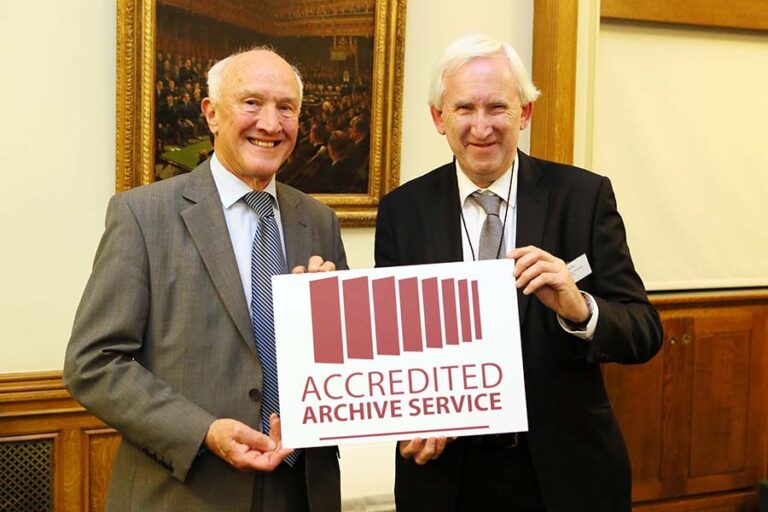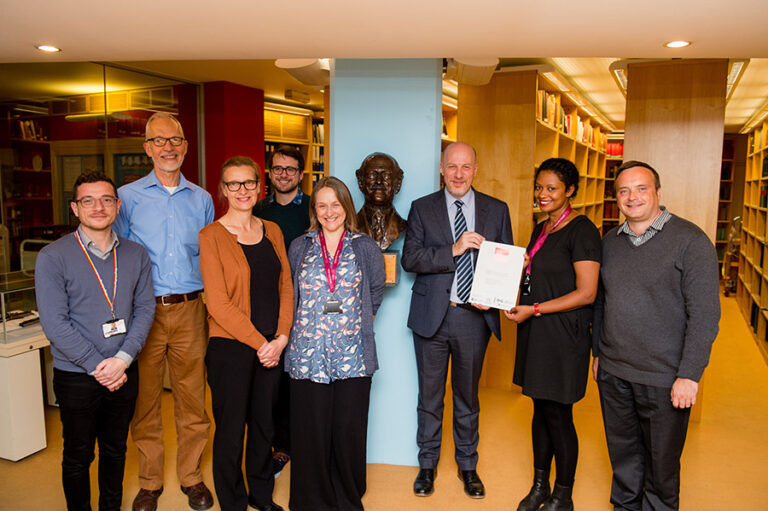Archive Service Accreditation is the UK standard for archive services, and becoming accredited is a testament to how an archive acquires, preserves and provides access to its collections in the long term. A partnership of organisations from across the UK supports the programme and I have the pleasure of chairing the Archive Service Accreditation Committee.
Guiding the Archive Service Accreditation programme through the pandemic has required the committee to stay closely engaged with how COVID-19 is affecting the archives sector. To balancing the needs of accredited services and potential applicants with a desire to keep the programme open, we have had to be highly flexible with reporting deadlines and assessment options. We have also had to match the number of applications with the reduced capacity of the assessor bodies and individual assessors. It has been a complicated time for everyone, and we would like to thank all the archive services who have kept in contact with their assessor bodies to ensure we have a realistic sense of where services are as the pandemic period has progressed.

Both the full committee (which guides the programme’s development) and the accreditation panels (which make awards) have continued to meet during this time, although naturally we have migrated to online meetings, as have so many others. Through reporting and assessments, we have witnessed how archive services have adapted their offer, coping with being separated from collections for varying periods and often making a quick transition to delivering greater online access.
Although we are yet to see how this might settle into a longer-term change to how archives deliver access in the future, we in the committee recognise that accreditation needs to keep up with any such major changes.
The pandemic has not been the only area that has challenged how we previously ran the accreditation programme. The archives sector has expressed a clear desire to adopt a more explicit approach to supporting equality, diversity and inclusion, and the committee has been keen to explore how we can integrate this into the standard.

At the last meeting in May 2021, the committee agreed a roadmap to developing equality, diversity and inclusion in accreditation through a phased process. The aim initially is to give archive services greater opportunities to demonstrate their work to date, and then embark on the longer process to develop accreditation holistically regarding equality, diversity and inclusion.
As with any changes to Archive Service Accreditation, there will be consultation with the archive sector, both with accredited services and those yet to apply, and with individuals and organisations with expert knowledge in this area. This consultation will begin shortly. As this is an area which many archive services have been actively developing in recent years, we have brought together the initial changes so that services can use them to benchmark their own work to date – and also feedback reflectively on how well the phased changes work.
Archive Service Accreditation launched in 2013, and we have always expected that after 10 years it would be necessary to review the programme in full. Our current activity puts us in a good place to decide what that review will involve.
We are planning for a rate of change within accreditation that is realistic for archive services to work with, and one that will result in a supportive framework to underpin ongoing improvement and development. If you are interested in joining in the discussions about Archive Service Accreditation’s future, please look out for details of the next opportunities on the Archive Service Accreditation webpages.
Geoff Pick is Chair of the Archive Service Accreditation Committee.